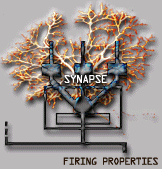 TOWARD A THEORY OF THE BRAIN?
TOWARD A THEORY OF THE BRAIN? TOWARD A THEORY OF THE BRAIN?
TOWARD A THEORY OF THE BRAIN?
A model of one self, adapted to knowledge bioengineering, should tell how the brain works. It would be integrated in two senses.
It would give an account at all the levels described in a general framework, from a specification of the cognitive systems to an understanding of the cellular mechanisms that support them.
It would also describe how these cognitive systems achieve the subjective conscious experience or "mind".
Such a theoretical model should be a solution to the dualistic separation between mind and brain that was expressed in the theory of René Descartes.
There is a sense in which the models of mind considered tend to render obsolete the mind-brain separation, at least at the everyday working level at which science is done. In some laboratories the shift of attention, the visual word form, or the system responsible for target detection at the cognitive level are everyday subjects of experience - that is, just the sequence of mental operations. Experiments are designed and done to see where these operations occur in the brain. Sometimes the experiments show correct predictions and sometimes new things. Each experimental design goes either from the cognitive to the anatomical or the reverse. Experiments in research centers throughout the world now move effortlessly between the description of mind and the anatomy of brain without any concern to the centuries of heated philosophical disputation about whether such a trajectory is even possible.
The protominds operating system involved in solving alarms and problems on hand, show an initial uphill transition. It follows a complex process of agreements and disagreements, with - eventually - a final energetic decay, and with a decrease of the number of initial degrees of freedom.
Neurons are slow and the alarm signals are much faster. This fact is persistently selecting, at least in the human species.
Natural selection gives priority to economic solutions: brain bypasses lags with more velocity but less precision. Brain evolution in the presence of danger, on the long run, gives a quite simple vision of the workings of mind when considered as an evolved control tool and alarm-situations manager.
RETURN TO
OTHER
7.mar.1999
Pulsar tecla de vuelta
Glosario de Carlos von der Becke.